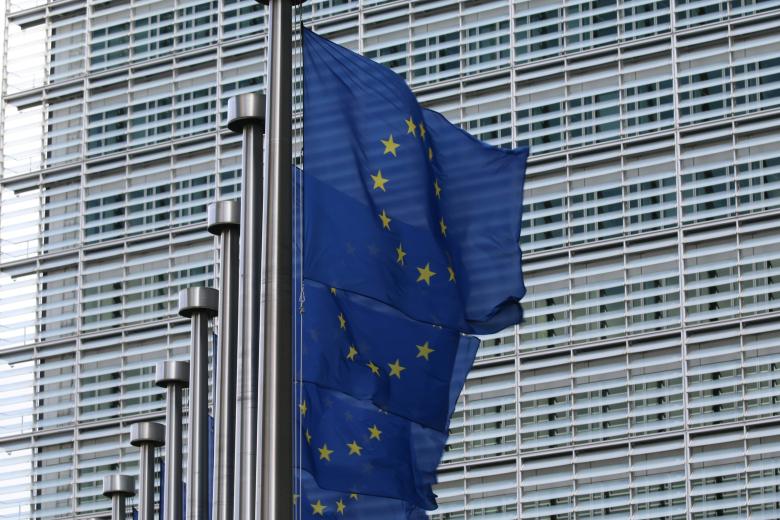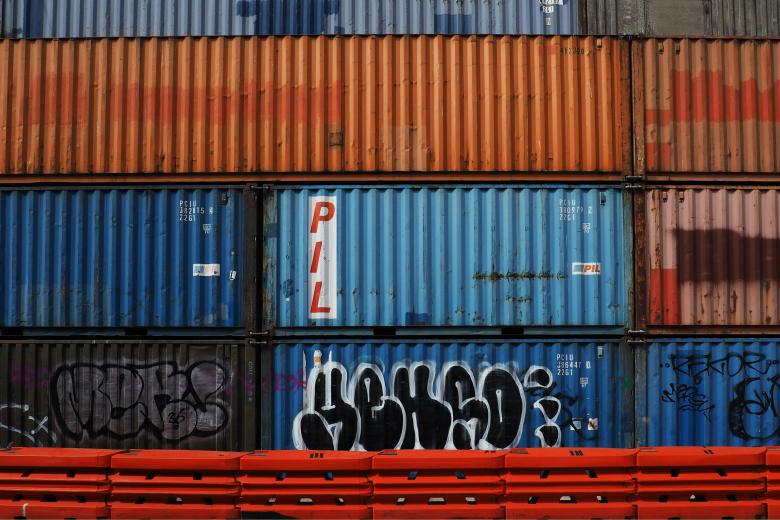The way to Geneva and INC-5.2 after the IACtHR Advisory Opinion on the Climate Emergency and Human Rights
How might the IACtHR Advisory Opinion on climate emergency and human rights reshape the Plastics Treaty negotiations?
On July 3, 2025, the Interamerican Court of Human Rights (IACtHR) issued the long-awaited advisory opinion NO. 32 on the climate emergency and human rights requested by Chile and Colombia. With over 200 pages, the opinion sheds light over the obligations of states under the Interamerican human rights system to respond to the climate emergency. The IACtHR’s response will inform the positions of American states in the negotiations of the treaty to counter plastic pollution under the United Nations Environmental Program (UNEP) framework (the Plastics Treaty). As the Court puts it: ‘states have the obligation to ensure coherence between their domestic and international commitments and their obligations to mitigate climate change’ (para. 344). Aligning the commitments that will be part of the Plastics Treaty with their existing obligations under the Interamerican human rights system will be key in the quest for coherence in the international legal framework applicable in the climate emergency.
A comprehensive overview of the main take aways of the advisory opinion can be found here. In this blog post I analyse the points that I consider relevant in connection to the negotiation of the Plastics Treaty, and that will and should influence the positions of states during the next negotiation round (INC-5.2) that will take place in Geneva at the beginning of August.
Plastic Pollution and the Climate Emergency
The Court situates the main topic of its advisory opinion – the climate emergency – in the broader context of the triple planetary crisis generated by the relation among climate change, pollution and biodiversity loss. The Plastics Treaty negotiations aim to address one of the components of this crisis: plastic pollution. The obligations that will be included in this instrument will have to be coherently articulated and systemically interpreted with other norms that govern state action in the climate emergency to adequately respond to the complexity of this phenomenon. This speaks to the relevance of examining the obligations analysed by the IACtHR in this advisory opinion in connection to the negotiations of the Plastics Treaty.
The Right to a Healthy Environment and Climate
The IACtHR refers to the fundamental autonomous right to a healthy environment protected by the American Convention on Human Rights (art. 23) and the Protocol of San Salvador (art. 11) – previously recognised and analysed in its Advisory Opinion No. 23 – and recalls that guaranteeing this right is a precondition for ensuring the enjoyment of other substantive rights, such as the rights to life, health, housing, water, work, culture, education, among others. Moreover, the IACtHR recognises that it encompasses an specific and differentiated right: the right to a healthy climate (para. 300). ‘A healthy climate,’ affirms the IACtHR, ‘derives from a climate system free of anthropogenic interferences that are dangerous for human beings and Nature as a whole.’ (para. 300). Hence, the collective dimension of this right protects the collective interest of present and future generations, of other species, and of Nature as whole to have a climate system that ensures their wellbeing and equilibrium. The global climate system is an essential part of the environment, and its damage constitutes environmental damage which is, by its nature, transboundary (para 295).
Linked to these rights are the duties to prevent environmental harm, which include a specific obligation to take measures to prevent climate damage, and not to cause irreversible harm to the environment and climate. The latter, according to the IACtHR, is an imperative norm (jus cogens norm) which, as such, entails an erga omnes obligation; all states should cooperate to end conducts that breach the prohibition to cause irreversible harm to the environment and climate (para. 290-294). The vital equilibrium of interdependent ecosystems enables the survival of species, including human beings – of both present and future generations – in an inhabitable planet; without this imperative obligation, that equilibrium would be impaired and no enjoyment of human rights would be possible.
Among the situations that generate irreversible harm to the environment listed by the IACtHR is the persistent and large-scale pollution of vital resources like natural water sources, the oceans or the air with durable and irreversible effects over the health of species and the viability of ecosystems. Plastics have persistently and increasingly polluted lands, rivers, oceans and the air, and microplastics having found in the most remote places as well as in humans’ bodies. The durability of this pollution is determined by the impossibility of plastics to degrade in the environment, and/or the toxic chemicals that are released in their degradation process, which causes irreversible effects on the environment, biodiversity loss and threatens human health.
Hence, it follows from the findings of the IACtHR, that states not only have the obligation to prevent environmental and climate harm that can be caused by plastic pollution, but that they have the duty to stop facilitating the generation of irreversible harm to the environment and climate that plastic pollution is generating, and to cooperate to end conducts that are breaching that prohibition. Since the IACtHR identifies this norm as an imperative one, it is applicable to the international community as a whole. Hence, it needs to be recognised and incorporated in the context of the Plastics Treaty negotiations, which will also entail including measures to reduce the sources of the pollution that is causing irreversible harm – i.e., capping the production of virgin plastics and banning harmful plastic products and chemicals in plastics – and to address plastic pollution legacy.
Moreover, the IACtHR affirms that in the context of the climate emergency, states have specific obligations derived from the right to a healthy environment and climate that entail (i) the mitigation of greenhouse gas (GHG) emissions, (ii) the protection of Nature and its components, and (iii) step-by-step progress towards sustainable development. The first two will be analysed in the next sections. Regarding the third one, the IACtHR opens the door for potential litigation regarding states’ immediately enforceable duty to develop a national strategy of sustainable development as part of their duties in the climate emergency, and their progressive obligation to adopt measures to comply with that strategy, by recognising that their progressive implementation and compliance can be subjected to accountability before the Court (para. 372).
The Obligation to Mitigate GHG Emissions
The obligation to mitigate GHG emissions requires states to limit these emissions coming from human activities in their jurisdiction, and to protect the carbon sinks in their territories. It includes an obligation to regulate, supervise and oversee, and to require and approve environmental impact assessments which have to explicitly include the effects of these activities on the climate system. The duty to regulate, affirms the IACtHR, entails, as established in the Paris Agreement, the definition of a mitigation target guided by the principles of progressivity, common but differentiated responsibilities, and intra and intergenerational equity. The IACtHR also understands that the target of 1.5ºC ‘should be considered a minimum starting point, rather than the finishing line’ (para. 326). Hence, the link between plastics production and pollution and GHG emissions needs to be specifically acknowledged in the Plastics Treaty, as well as in the definitions of states’ mitigation strategies.
An important factor highlighted by the IACtHR in relation to the mitigation measures is that they must take into account their potential effects on people and ecosystems to ensure a just transition (para. 341). Consequently, they need to consider the role of poverty and inequality in the production of GHG emissions, solidarity, social justice and the equitable distribution of the economic and environmental burdens arising from mitigation measures to ensure that those who pollute the most pay the most (para. 341), and that ‘those who suffer or benefit the least receive help from those who benefit the most’ (para. 506).
Moreover, the IACtHR clarifies the obligation of states to regulate corporate behaviour in activities and sectors that emit GHG, both inside and outside its territory, to guarantee respect for human rights. It includes the duty of states to, among other actions, urge companies domiciled or operating in their territory and jurisdiction to take effective measures to combat climate change and related impacts on human rights; enact legislation requiring companies to conduct due diligence on human rights and climate change throughout their value chains; require companies to disclose the GHG emissions from their value chains, take measures to reduce such emissions, and adopt standards to discourage greenwashing (para. 347).
These findings support the claims in the Plastics Treaty negotiations that advocate for mainstreaming the principle of just transition across the text of the agreement, as well as the operationalisation of the polluters pay principle through the inclusion of a polluters fee as a source of funding for the financial mechanism necessary to effectively implement the treaty.
The Duty to Protect Nature and its Components
The IACtHR highlights that the right to a healthy environment ‘protects the components of the environment, such as forests, rivers, and seas, as legal rights in themselves, even in the absence of certainty or evidence of the risk to the individual.’ (para. 273). This implies the autonomous protection of Nature due to ‘its vital interdependence with other living organisms that make life on this planet possible,’ and not only because of the effects that its degradation might cause on human rights. Concomitantly, the IACtHR points to the growing normative and jurisprudential trend to recognise Nature as a subject of rights and indicates that this contributes ‘to strengthening a truly sustainable development model that respects planetary limits and ensures the availability of crucial resources for present and future generations’ (para. 279).
In connection to the right to a healthy climate, the IACtHR affirms that it demands ‘a systemic comprehension of multiple interactions that sustain life in the planet and requires recognizing humanity as another expression of the interdependent net of Nature’ (para. 314). Consequently, an ‘integrated legal approach, capable of uniting the protection of human rights and the rights of Nature within a legal framework coherently aligned with the harmonious interpretation of the pro persona and pro natura principles’ is needed (para. 315). Hence, in the context of the climate emergency, the states’ obligation that derives from this right is the duty to protect Nature and its components (para 366).
Along the negotiation process of the Plastics Treaty, and particularly during the discussions over the scope and principles of the instrument, members disagree over the rights that it should seek to protect. The IACtHR’s clarifications over the integrated legal approach that unites the protection of human rights and the rights of Nature shines light over these debates. Protecting Nature implies protecting human rights. As the Court points out humanity is ‘just one more manifestation of Nature’s interdependent network’ (para. 314); without a healthy environment and climate, there’s no enjoyment of other basic human rights. Unfortunately, this is something that the plastic pollution crisis depicts very well: the plastics, microplastics and harmful chemicals in plastics that pollute our lands, water sources and air are responsible for the death of animal and plant species, and for terminal human diseases.
Furthermore, the IACtHR also indicated that states have the duty to review their existing trade and investment agreements, ‘to ensure they do not limit or restrict efforts relating to climate change and human rights’ (para 351). Hence, this will condition the way in which states interpret their trade and investment obligations in the context of the Plastics Treaty negotiation; they cannot be used to restrict the protection of Nature as whole.
Procedural Rights in the Climate Emergency: the Right to Science and to Political Participation
When analysing the obligations derived from the procedural rights, the IACtHR recalls that respecting and guaranteeing these rights are essential conditions for ensuring the legitimacy and effectiveness of climate action (para. 458). Two rights referred by the Court in the context of the climate emergency are particularly relevant for the negotiations of the Plastics Treaty: the right to science and the right to political participation.
The first one – protected by the American Convention (art. 26) – entails, among others, the duty of states to provide science education and report on major scientific discoveries and their application; guarantee an environment conducive to the conservation, development, and dissemination of science and technology; ensure participation in science; and to incentivise the development of science related to key aspects of the climate emergency (para. 474).
The IACtHR then highlights that alongside scientific knowledge, other forms of knowledge coexist, such as local, traditional and indigenous knowledge, which should be considered part of the right to science, in accordance with an evolutionary interpretation. Hence, this right not only includes access to the benefits derived from science in the strict sense, but also access to culture or, ‘more precisely, to the benefits that may be obtained from forms of knowledge related to it, that is, from local, traditional and indigenous knowledge’ (para. 477). These knowledges are particularly important ‘in the context of the climate emergency because, given the urgency and complexity of the measures required to address it, the corresponding decisions must necessarily be based on the best available knowledge.’ (para 478).
The IACtHR indicates that the promotion of a dialogue to explore the relations among the different knowledge systems is key to achieve this goal. This should be accompanied by states complying with their duty to adopt measures to protect local, traditional, and indigenous knowledge; to respect and protect the rights of indigenous peoples, particularly their land, their identity, as well as the protection of moral and material interests derived from their knowledge; and to support the compilation of local, traditional, and indigenous knowledge related to climate change, the environment, and human rights (para. 484).
The second right – the right to political participation, enshrined in art. 23.1.a) of the American Convention – is characterised by the IACtHR as a fundamental pillar in the procedural rights, since it implies the exercise of democratic control over states’ actions and allows people to be part of the decision-making process (para. 530). Hence, states are obliged to guarantee the participation of people under their jurisdiction in decision-making and policies that may affect the environment and the climate system, without discrimination, in an equitable, significant and transparent manner, which also entails guaranteeing first the right to access relevant information (para. 532 and 535). States must also cooperate to ensure public participation in decision-making at the regional and international levels, without discrimination (para. 536), and must encourage the participation of indigenous and tribal peoples and Afro-descendant, peasant and fishing communities, taking into account their particular vulnerability and the importance of including traditional, local, and indigenous knowledge in the decision-making processes to respond to this emergency (para. 539). Indeed, the Court recalls that indigenous peoples play a fundamental role in the preservation and sustainable management of climate ecosystems, since their ancestral knowledge and close relationship with Nature have proven essential for the conservation of biodiversity and the mitigation of climate change. Hence, states have the duty to facilitate their participation and ongoing involvement in decision-making and in the implementation of mitigation measures, and ensure that they have the necessary financial resources to participate in those processes (para. 606).
The recognition of local, traditional and indigenous knowledge, as part of the right to science and the duties of states connected to the participation of indigenous and tribal peoples and Afro-descendant, peasant and fishing communities in decision-making processes related to the climate emergency, both at the national and international level, are of particular importance in the context of the Plastics Treaty negotiations. Indeed, the last version of the text already refers to local, traditional and indigenous knowledge, but its recognition as part of the right to science adds another layer to it. Information about this knowledge and their proposals need to be incorporated as material equally valuable as that one elaborated by the scientist coalition. Moreover, the text should refer to these groups as rightsholders, and their status in the negotiation process should also be reconsidered. The IACtHR makes a clear point in the advisory opinion about their participation in the decision-making process; they are not just observers, but their voice and knowledge should be heard and incorporated in that process.
Regional Climate Duties and the Path to INC-5.2
This landmark opinion issued by the IACtHR comes at a critical juncture for the development of climate jurisprudence; the International Tribunal for the Law of the Sea (ITLOS) and the European Court of Human Rights (ECHR) have pronounced themselves on these issues, there is a pending request for an advisory opinion before the African Court on Human and Peoples’ Rights (AfCtHPR), and the International Court of Justice (ICJ) is expected to issue its advisory opinion on the Obligations of States in respect of Climate Change at the end of this month. It incorporates progressive elements related to the right to a healthy environment and climate, the state duties that derived from it, and the recognition of Nature as a subject of rights that enjoys autonomous protection.
In the context of the Plastics Treaty negotiations, the opinions of the IACtHR will certainly inform the positions of many American states parties to the American Convention on Human Rights as they aim to ensure coherence with their human rights obligations in the climate emergency. As the IACtHR highlights, its interpretation of the Interamerican human rights instruments should be considered not only by their states parties, but by all members of the Organization of American States (OAS). This is particularly important when considering the obligations of states that are not party to American Convention, but are bound by the OAS Charter, such as the United States. The position and proposals of the American states that compose the High Ambition Coalition (HAC) already align quite well with many of the findings of the IACtHR (see this post for a summary of the last negotiation round). However, in the case of other American states that are not part of HAC, like Argentina and Brazil, the question of whether their positions and proposals are compatible with their obligations under the Interamerican human rights system arise. The outcomes of INC-5.2 will likely provide valuable information to outline potential the answers. We will have to wait until mid-August.
Photo credits:
“OC-dia2-02” by CorteIDH, CC BY-SA 2.0
M.B. Gracia
Belén Gracia is a PhD Candidate at Maastricht University, Faculty of Law. Her research explores the intersection between international law and an inclusive circular economy in plastics. Her PhD is under the supervision of Prof. Dominic Coppens, Dr. Iveta Alexovičová and Dr. André Nunes Chaib.

-
Trading Softly? The EU’s Quiet Shift Toward Clean Trade and Investment Partnerships
For decades, multilateralism has been the guiding principle for regulating international trade relations between states. The European Union (EU) has long championed this approach, firmly believing that global cooperation - ideally through consensus among all countries - is the most effective way to...

-
Rules Under Fire: The Case for International Trade Law Today
On 17 April, many of us had the pleasure of attending an IGIR Expert Lecture by John Clarke, former Chief Agriculture Negotiator of the European Union and former Head of the EU Delegation to the World Trade Organization and the United Nations in Geneva. He is currently a fellow at the Maastricht...

-
AI-assisted consumer: Is the proposed European Artificial Intelligence Act ready to embrace ChatGPT?
ChatGPT’s rapid virality sparks both enthusiasm for using the product and concerns about consumer protection. Protecting consumers in the age of AI was also a central topic at the AI-Assisted consumer seminar, co-organized by MaRBLe, GLaw-Net, and IGIR.
